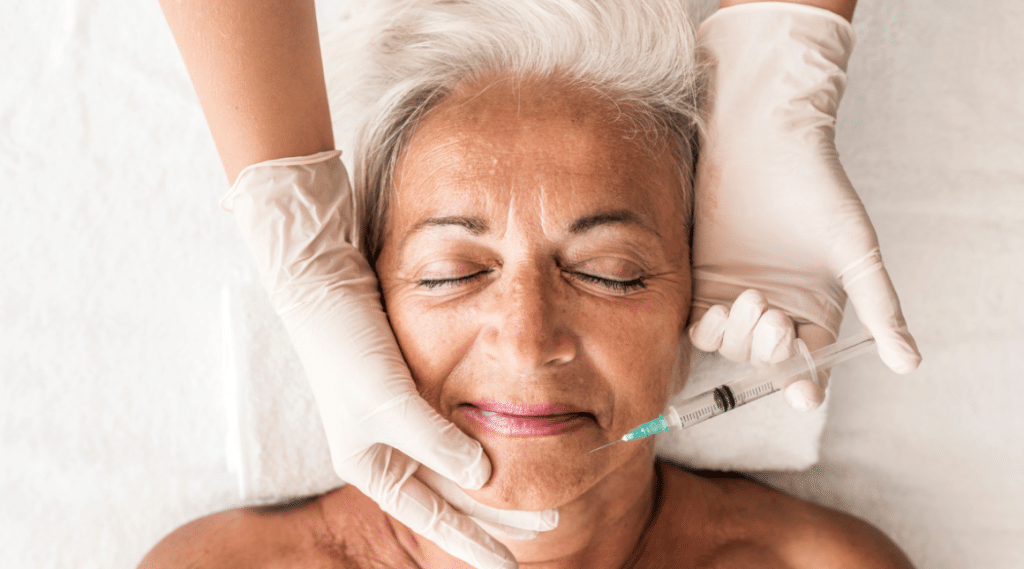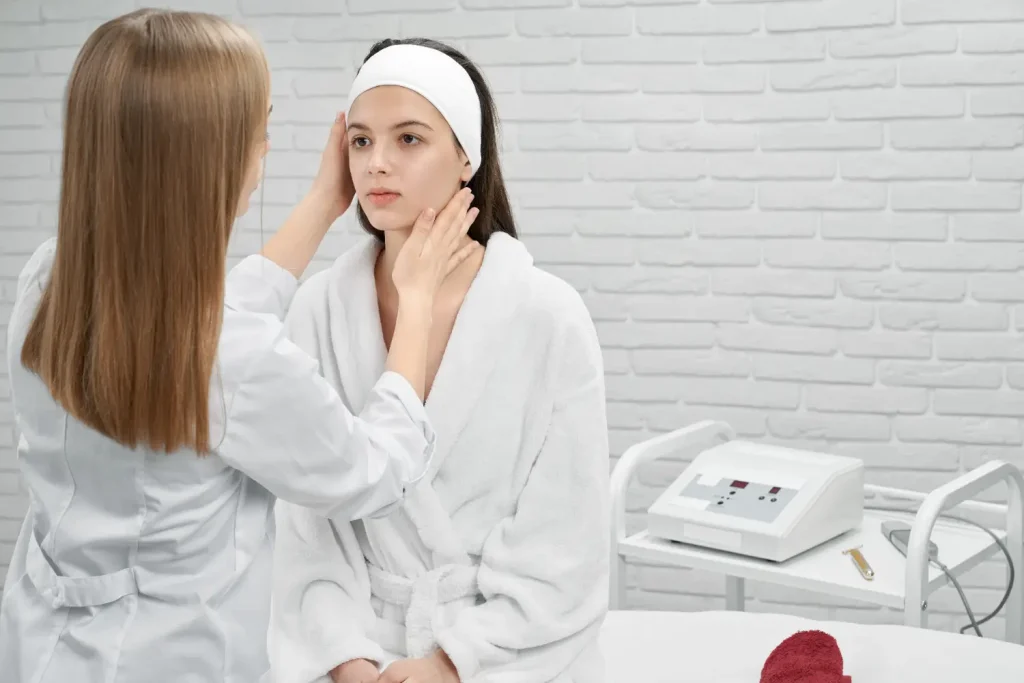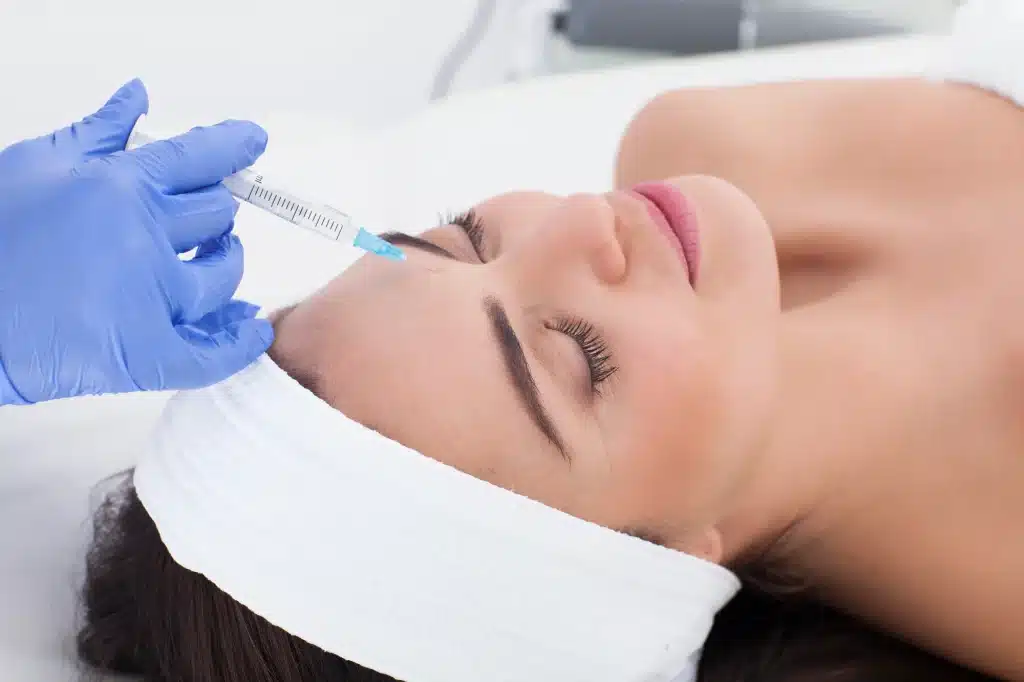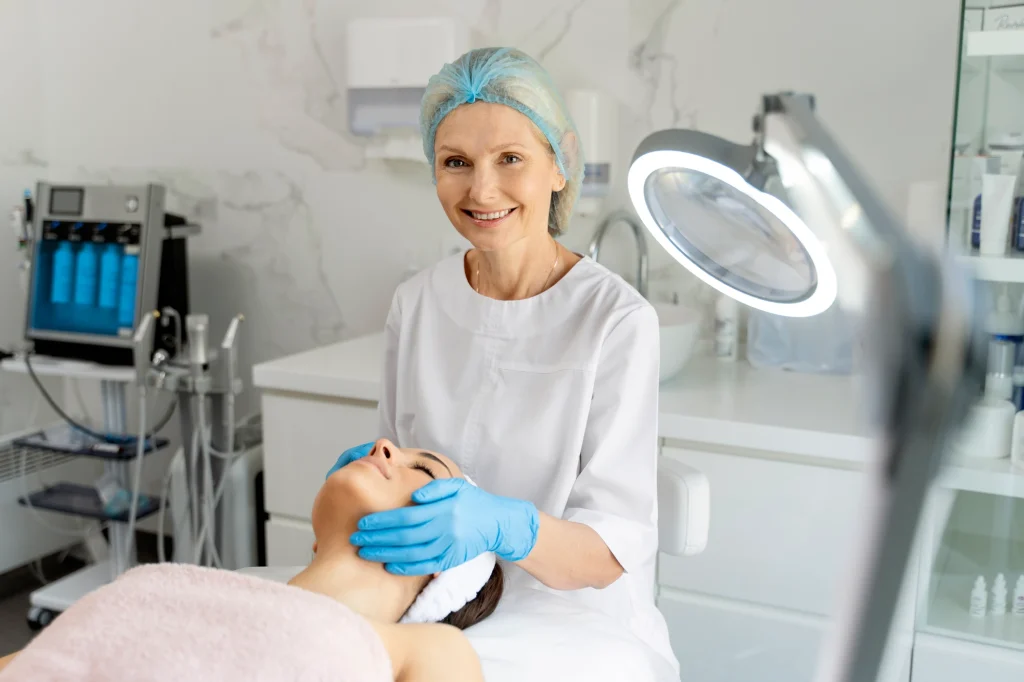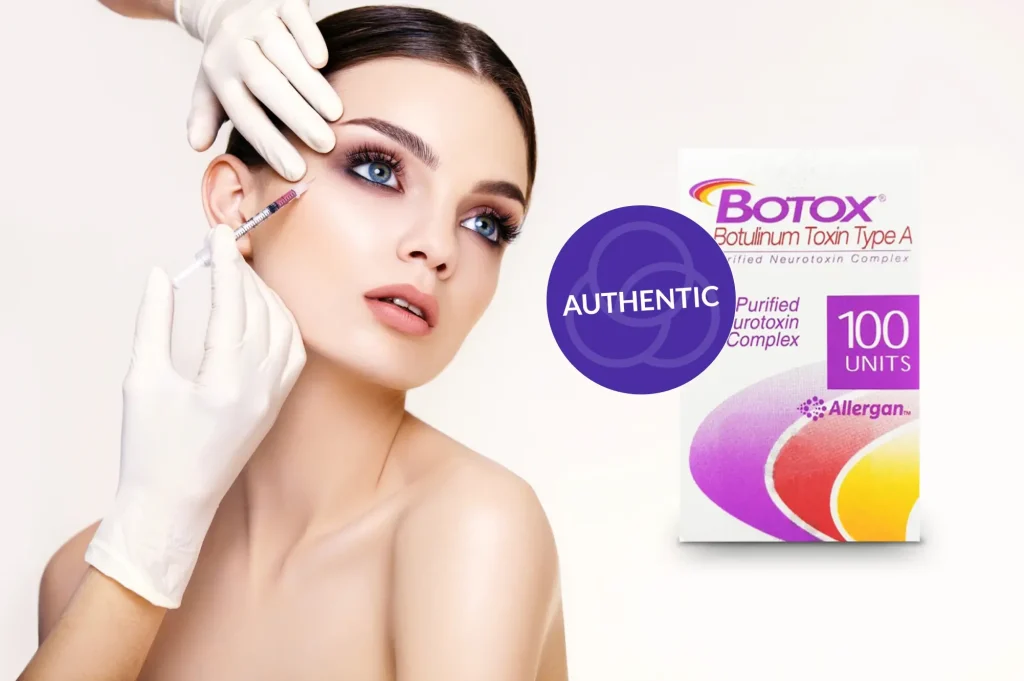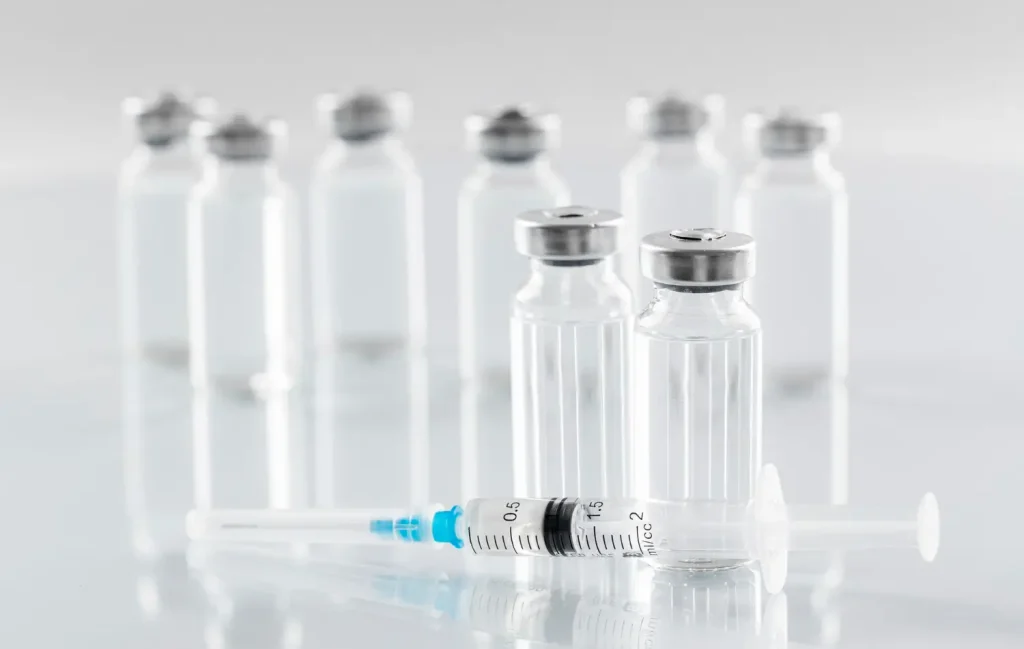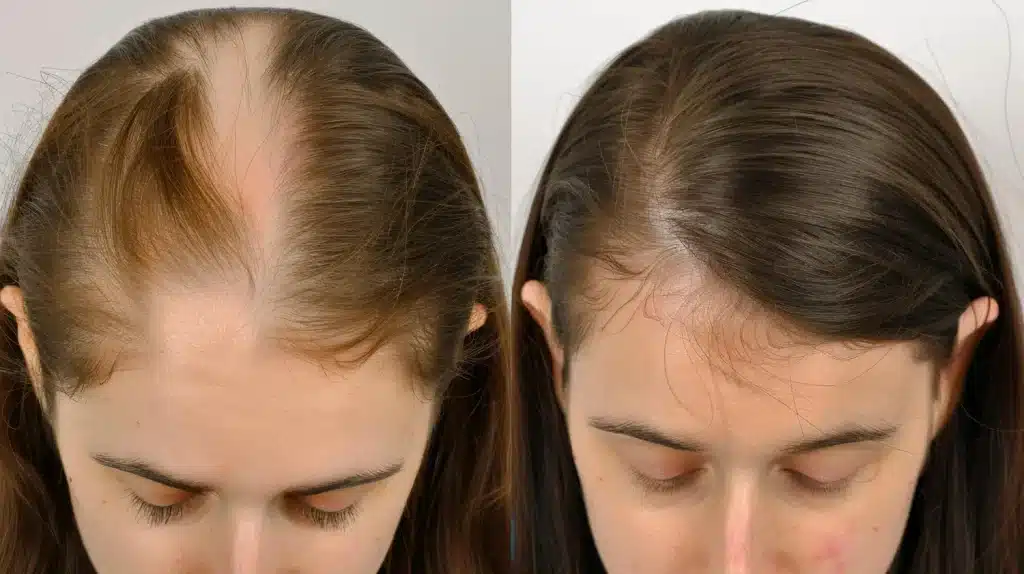According to the Journal of Cosmetic Dermatology, cosmetic treatments like Botox enhance physical appearance and significantly affect emotional well-being. This connection underscores the complex interplay between how we look and feel, positioning Botox as more than just a tool for aesthetic enhancement.
The notion that altering one’s appearance can lead to changes in emotional states opens a fascinating dialogue on the mind-skin connection. Without delving too deeply into the specifics, it’s clear that the implications of such treatments extend beyond the surface.
This article will delve into the intricate relationship between Botox injections and emotional well-being, offering insights into how this popular cosmetic procedure can influence not just our looks but our feelings and overall mental health.
Key Takeaways
- There’s a complex relationship between our emotional well-being and physical appearance, with treatments like Botox positively affecting both.
- Botox has shown potential in improving mood, boosting self-confidence, and even reducing symptoms of depression and anxiety.
- While Botox offers benefits, managing expectations and seeking professional guidance is crucial for psychological well-being.
- Botox’s therapeutic potential extends beyond cosmetics to treating mental health conditions, highlighting the need for further research.
- Discussion on Dysport emphasizes the importance of expert consultation and realistic expectations for enhanced appearance and confidence.
The Science of the Mind-Skin Connection
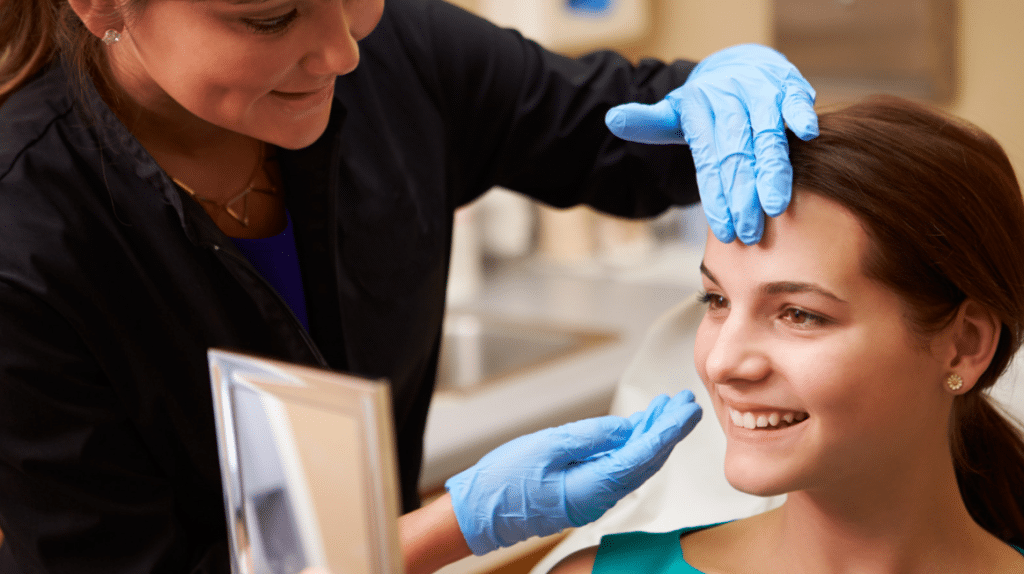
Explore the intricate link between our appearance and emotional health and how Botox connects the two.
Understanding the Link
The relationship between our mental state and skin health is a fascinating area of study. Psychodermatology sheds light on how psychological factors can significantly affect skin conditions. Research in this area has revealed that skin conditions are influenced by physical factors and deeply interconnected with our emotional and psychological states.
For instance, stress and anxiety have been observed to precede and exacerbate skin conditions like psoriasis, with significant numbers of patients showing higher rates of depression and anxiety compared to the general population. This intricate connection suggests that our skin can reflect our mental health state, leading to a greater interest in holistic approaches to treatment that address both psychological and dermatological aspects.
The Role of Facial Expressions in Emotions
The skin, the largest sensory organ, plays a crucial role in our emotional feedback system. Psychological stressors can trigger the release of hormones that affect our emotional state and directly impact the skin’s health, leading to inflammation and other skin disorders.
Botox demonstrates the intricate relationship between our physical appearance and emotional well-being in this context. Understanding what Botox is used for cosmetically highlights its role in enhancing physical appearance. It underscores the potential psychological benefits of feeling more confident and satisfied with one’s appearance.
Botox and Emotional Well-Being
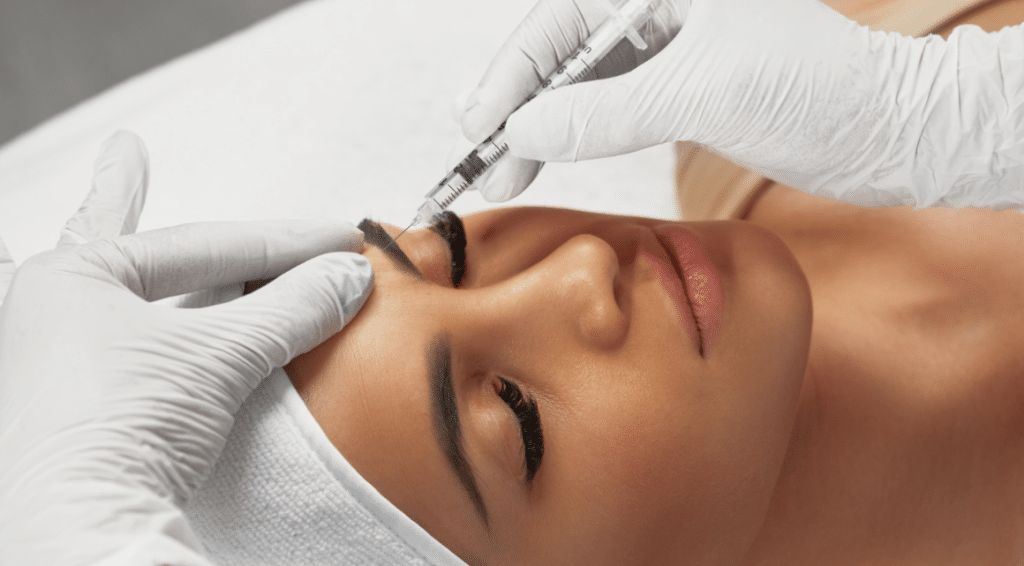
Delve into Botox’s specific impacts on our emotional state, examining how it modifies facial feedback and influences mood.
How Botox Affects Facial Feedback
While not directly covered in the sources, it’s well-understood in psychodermatology that altering facial expressions can impact our emotional feedback mechanism. Botox can interfere with this feedback loop by relaxing muscles and reducing the intensity of facial expressions.
The facial feedback theory hypothesizes that facial expressions can influence emotional experiences. Thus, Botox might reduce the ability to express emotions through facial expressions, impacting how individuals process and feel emotions.
Studies on Botox and Mood Improvement
Research on Botox has suggested potential mood improvement effects stemming from the reduced ability to frown or express negative emotions intensely. This aligns with the facial feedback hypothesis, where the physical expression of feelings can feed back to influence our emotional state.
By minimizing negative expressions, Botox might contribute to an overall improvement in mood and emotional well-being for some individuals. However, it’s crucial to approach this area with a nuanced understanding, recognizing the complex interplay between physical treatments and psychological outcomes.
The Psychological Impact of Aesthetic Treatments
Uncover how aesthetic procedures like Botox transform appearances and significantly enhance mental health and social confidence.
Boosting Self-Confidence
Aesthetic treatments can significantly boost self-confidence by aligning one’s appearance with self-image. The satisfaction from these treatments often translates into increased self-assurance across various aspects of life, including professional and personal relationships.
Research indicates that individuals undergoing treatments like Botox experience heightened self-esteem and improvements in mental health. Specifically, surveys have shown that a vast majority of Botox users report feeling happier and more confident post-treatment.
Social Perceptions and Interactions
The enhancement of self-confidence following aesthetic treatments has profound effects on social perceptions and interactions. An analysis from the HARMONY study, reported in the Aesthetic Surgery Journal, reveals that aesthetic treatments can make individuals perceived more positively in various social contexts.
Observers noted that posttreatment subjects appeared to have more positive character traits and were more socially adept, younger, and attractive, underscoring the impact beyond mere physical appearance. These findings collectively underline the psychological impact of aesthetic treatments, emphasizing the personal benefits of increased self-confidence and improved mental health and the broader social advantages related to enhanced perceptions and interactions.
Potential Concerns and Considerations
Address the importance of managing expectations and the need for professional guidance in the aesthetic enhancement journey.
Navigating Expectations
Managing expectations is crucial in aesthetic treatments. The complexity arises from patients forming their notions about procedures through various sources, leading to either anxiety or confusion. Clear communication, including discussing the procedure details and expected outcomes and addressing any misinformation, helps maintain realistic expectations and minimize dissatisfaction.
Importance of Professional Guidance
Seeking professional guidance is essential. Choosing a reputable provider and having an open discussion about expectations and potential outcomes, both positive and negative, is vital for making informed decisions. This approach ensures a better alignment of treatment results with patient expectations, enhancing satisfaction and psychological well-being.
Beyond Aesthetics: Therapeutic Uses of Botox
Investigate Botox’s promising role beyond beauty, especially its potential in treating psychological conditions such as depression and anxiety.
Treatment for Depression and Anxiety
Botox, traditionally known for its cosmetic applications, has shown promising results in the treatment of depression and anxiety. Research conducted by the Skaggs School of Pharmacy and Pharmaceutical Sciences at the University of California San Diego, analyzing data from the FDA’s Adverse Effect Reporting system, revealed a significant reduction in anxiety symptoms in patients treated with Botox.
This study found that anxiety risk was 22 to 72 percent lower in Botox-treated patients compared to those undergoing different treatments for the same conditions. The findings suggest a broader potential for Botox beyond aesthetic enhancements, potentially offering relief for millions affected by anxiety disorders.
Future Research Directions
While the exact mechanisms by which Botox may alleviate symptoms of depression and anxiety are not fully understood, several theories exist. One possibility is that Botox affects the central nervous system or the neuromuscular junctions in a way that communicates with the brain, influencing mood and emotions.
Alternatively, by treating chronic conditions that contribute to anxiety, Botox might indirectly relieve anxiety symptoms. Further research and clinical trials are needed to understand the best application sites and dosages for treating anxiety with Botox specifically.
Choosing the Right Approach
Find out when and how to consider Botox as part of a comprehensive approach to mental health, including alternative and complementary therapies.
When to Consider Botox
Botox might be considered for individuals experiencing depression or anxiety who have not responded well to traditional treatments like psychotherapy and medication. However, it’s crucial to discuss this option with a mental health provider to determine whether Botox could be a suitable part of a comprehensive treatment plan.
Alternatives and Complements
While Botox presents an option for treating certain mental health conditions, it is one of many tools available. A multi-faceted approach, including therapy, medication, lifestyle changes, and other interventions like meditation, can offer support for those dealing with depression and anxiety. Patients should consult healthcare and mental health professionals to identify the best treatment plan.
Conclusion
Dysport treatments are preferred for individuals seeking to rejuvenate their skin and reduce wrinkles without surgery. Their effectiveness, coupled with the relatively quick onset of results and the ability to provide a natural-looking improvement, makes them a popular choice among those looking to enhance their appearance.
Real patient stories and expert insights emphasize the importance of selecting experienced practitioners, the transformative potential of the treatment, and its positive impact on patients’ confidence and quality of life. For anyone considering Dysport, conducting thorough research, setting realistic expectations, and committing to proper care before and after treatment is vital to ensure optimal outcomes.
About: MedicalSpaRX is a one-stop shop for all your wholesale medical and cosmetic supplies, including Botox that provides impressive botox first time before and after results. They offer a wide range of products, including dermal fillers, Botox, and skincare products, at competitive prices with fast shipping. Plus, they have a referral program that rewards you for introducing new customers.
FAQs
- What is the mind-skin connection?
The relationship between how we feel emotionally and our skin’s health or appearance directly impacts each other.
- How does Botox affect emotional well-being?
Botox can improve mood and emotional well-being by altering facial expressions, potentially reducing the intensity of negative emotions.
- Can Botox treat depression and anxiety?
Research suggests Botox could lower symptoms of depression and anxiety by influencing facial expressions and possibly affecting the central nervous system.
- What should I consider before getting Botox?
Consider your expectations, and seek advice from a professional to understand the aesthetic and potential psychological benefits.
- Is Botox only for cosmetic use?
No, Botox has therapeutic applications, including treating certain medical conditions like chronic migraines, in addition to its cosmetic uses.
References
Allergan. (2023, September 7). Journal of Cosmetic Dermatology publishes data demonstrating patient satisfaction with natural-looking outcomes following treatment with OnabotulinumtoxinA (Botox Cosmetic). PR Newswire. https://www.prnewswire.com/news-releases/journal-of-cosmetic-dermatology-publishes-data-demonstrating-patient-satisfaction-with-natural-looking-outcomes-following-treatment-with-onabotulinumtoxina-botox-cosmetic-301913155.html
Goldin, D. (n.d.). What’s the connection between mental health and skin health? MindBodyGreen. https://www.mindbodygreen.com/articles/whats-the-connection-between-mental-health-and-skin-health
Goldin, D. (2021, June 30). The mind and skin connection. Psychology Today. https://www.psychologytoday.com/us/blog/the-brain-body-connection/202106/the-mind-and-skin-connection
Metropol Med. (n.d.). The psychological effects of Botox: Improving self-confidence and mental health. https://www.metropolmed.com/the-psychological-effects-of-botox-improving-self-confidence-and-mental-health/
UC San Diego Health. (2021, December 21). Botox injections may reduce anxiety. https://health.ucsd.edu/news/press-releases/2021-12-21-botox-injections-may-reduce-anxiety/
Reilly, M., & Hakimi, A. (2022, January 10). Is Botox good for mental health? Psychology Today. https://www.psychologytoday.com/us/blog/dissecting-plastic-surgery/202201/is-botox-good-mental-health

